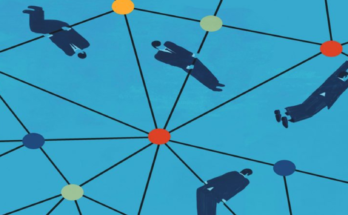China and India’s economic growth rates are rapidly declining as of the end of 2012, while growth rates in the United States and Japan are slowing, and the EU is on the verge of recession. While the Arab Awakening is largely perceived as a call for democracy, the majority of people in the participating nations desire better living circumstances, which may not be forthcoming. According to the IMF, the global economy is set to have its worst growth rate since 2009. Governments appear to be unable to devise economic policies that can restore their nations’ economies, and hence the global economy, to levels observed in previous decades. Domestic upheavals and battles between nations have historically occurred when they are least destitute and oppressed, but when progress has stalled and aspirations have been disappointed. Indeed, many countries are experiencing an upsurge in nationalism, xenophobia, racism, religious fanaticism, and extremism. The fact that inequality is rapidly increasing in all of the countries concerned adds gasoline to the sociologically explosive international situation.
If the world’s population are unable to return to what is referred to as the “old normal” (supported by rapidly expanding economies), what will the “new normal” look like? Will it merely be an irritating and alienating scaled-back version of the previous normal? Or will people acquire new ideas about what constitutes a decent existence, like they did in prior historical periods? If successful, a recharacterization of the happy life will enable individuals to manufacture a silk purse out of a sow’s ear, or, in plain English, to convert their sorrow into an opportunity.
Good Life from a Historical and Transnational Perspective
People entrenched in the consumerist culture that currently dominates many areas of the world’s civilizations find it difficult to conceive a decent existence based on values that are fundamentally different from their own. Throughout history, numerous ideas on what constitutes a good life have emerged. For example, for centuries, imperial Chinese literati rose to prominence via the pursuit of knowledge and the development of the arts, rather than through the accumulation of riches. This set of scholar-bureaucrats spent their early years studying rigorously in preparation for the government service tests. They spent years learning Confucian classics.
After passing the imperial examinations, the literati were competent for government work, but they chose to devote their lives to the arts or retire early to pursue creative endeavors. They performed music and wrote poetry, learnt calligraphy, and convened with like-minded individuals to share ideas and analyze classic works from the past.
According to sociologist Reinhard Bendix, Confucian beliefs suggest that an educated individual should avoid pursuing riches as it might lead to society and psychological turmoil. To be sure, this would not be the case if the success of economic endeavors was assured, but in the absence of such a guarantee, the poise and harmony of the spirit are jeopardised by the dangers involved…The cultured man strives for self-perfection, but all jobs involving the quest of money need one-sided specialization, which contradicts the gentleman’s universality” (Bendix 1966).
During the Middle Ages, knights were supposed to follow a strict code of chivalry. The tenets they were supposed to follow are beautifully expressed in Song of Roland, an 11th-century poem. Throughout the poem, the honorable knight is portrayed to willingly and truly serve his liege lord, to defend the poor and helpless, to show correct devotion for God, to respect and honor women, to be truthful and loyal, and to regard material gain with contempt and scorn. In historic Jewish communities, learning the Torah was considered the best way of life.
Even in recent Western history, there have been major shifts in what is considered the ideal life. One such significant transformation happened following the conclusion of World War II. Economists of the time believed that humans had fixed requirements that, if met, would cause individuals to stop consuming. Furthermore, economists observed that during World War II, American production capacity increased dramatically. They feared that once the war was over, the idle assembly lines that produced thousands of tanks, planes, and other war-related materials would result in massive unemployment — because there was nothing the assembly lines could produce that people needed, given that their fixed needs had been met.
Sociologist David Riesman wrote an influential essay titled “Affluence for What?” in which he proposed that the “surplus” be used for projects such as paying New Orleans residents to maintain their 1955 lifestyle so that future generations of children could visit this sociological Disneyland to see what life was like in the past, just as they do in Williamsburg.
Instead, in the years following WWII, industrial companies discovered that they could create demand for the products they promoted. For example, women and men were taught that they smelled unpleasant and needed to buy deodorant.
More broadly, the good life was characterized as having a high and increasing degree of consumption, in the sense that one could never consume enough. There was always a new smartphone, flat-screen TV, or this year’s trendy towels and linens that the individual “needed.”
Less frequently mentioned, maybe because it is so obvious, is that paying for the high level of consumption necessitates hard effort. Initially, the spouses worked primarily to provide for the family, leaving little time and energy for other activities, such as spending time with their families, as represented in Arthur Miller’s Death of a Salesman. In succeeding decades, as more women entered the work sector, the combined salaries of husband and wife went toward paying for the high-consumption lifestyle.More and more individuals began to carry their work home with them, even on vacation, thanks to Blackberries and other such devices.
In short, there is nothing natural or inescapable about the rich life: it comprises the type of lifestyle that prior cultures and the early historical periods of the West regarded as deplorable.


